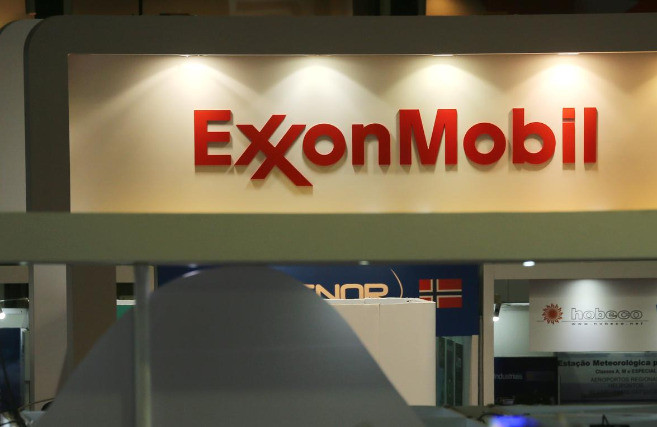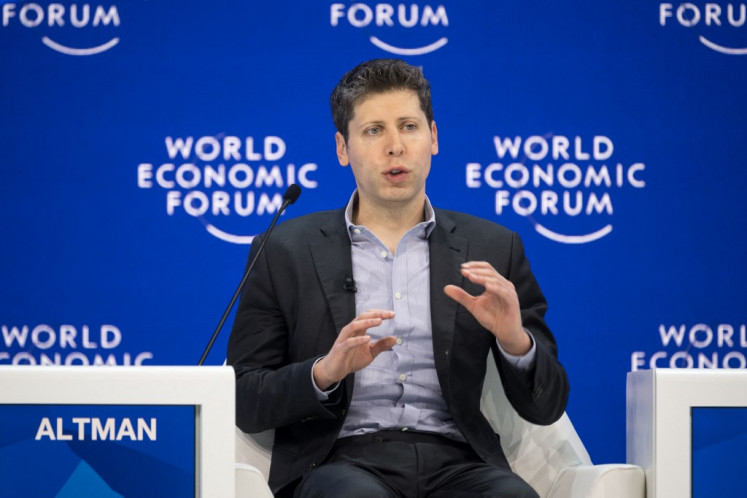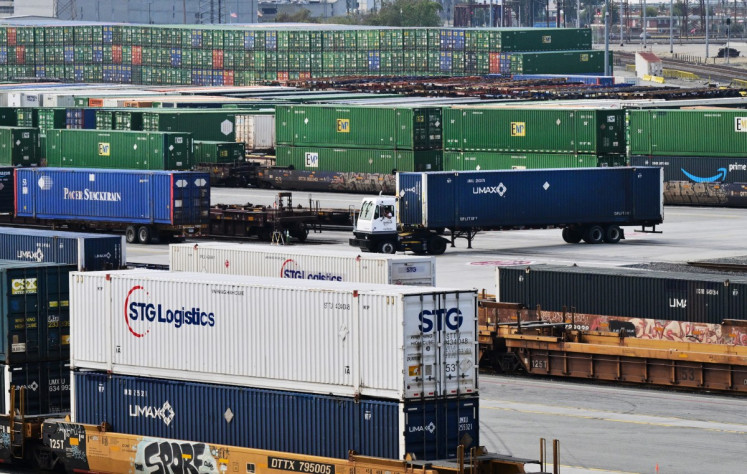Popular Reads
Top Results
Can't find what you're looking for?
View all search resultsPopular Reads
Top Results
Can't find what you're looking for?
View all search resultsExxon secures lead in top US oilfield with $60b buy of shale rival Pioneer
The deal, valued at $253 a share, combines the largest US oil company with one of the most successful names to emerge from the shale revolution that turned the US into the world's largest oil producer in little more than a decade.
Change text size
Gift Premium Articles
to Anyone
E
xxon Mobil agreed to buy US rival Pioneer Natural Resources in an all-stock deal valued at US$59.5 billion that would make it the biggest producer in the largest US oilfield and secure a decade of low-cost production.
The deal, valued at $253 a share, combines the largest US oil company with one of the most successful names to emerge from the shale revolution that turned the US into the world's largest oil producer in little more than a decade.
Exxon Chief Executive Darren Woods said in a media briefing the combination provides a big opportunity for synergies between the companies.
"We basically closed this deal fairly quickly," Woods said after approaching Pioneer CEO Scott Sheffield two weeks ago. "It became very obvious very early on in those discussions that there's a big opportunity here."
The merged company could add 700,000 barrels per day of new oil and gas (boepd) within four years of the deal closing, raising output to 2 million boepd. It also aims to cut greenhouse gas emissions and increase oil output per well by combining Exxon technology with Pioneer's lower cost of operations, Exxon said.
The offer represents a 9 percent premium to Pioneer's average price for the 30 days prior to Oct. 5, when reports of deal talks surfaced. Pioneer shares closed up 1.4 percent at $240.82 trading. Exxon shares fell 3.6 percent.
The closing price implies investors see a 72 percent probability the deal will be completed, based on Pioneer's closing share price on Oct. 5.
The deal, expected to close in early 2024, will leave four of the largest US oil companies in control of much of the Permian Basin shale field and its extensive infrastructure.
"The market share of this combination appears to be under thresholds typically warranting action [by US anti-trust regulators]," RBC Capital Markets analyst Scott Hanold said in a note.
Largest in Perrmian shale
Pioneer is the Permian oilfield's largest well operator, accounting for 9 percent of gross production, while Exxon occupies the No. 5 spot with 6 percent, according to RBC.
Pioneer had bulked up through multibillion-dollar deals such as those of shale rivals DoublePoint Energy for $6.4 billion in 2021 and Parsley Energy for $7.6 billion in 2020 under CEO Sheffield.
Sheffield will earn a $29-million exit package on the sale's closing, and four other top Pioneer executives will receive about $42 million combined in severance pay.
"Today is a bittersweet day for me," Sheffield told employees in a letter, promising its oilfield workers and most office staff will be offered Exxon jobs, or severance pay if they decline the offer.
"We're not looking at cutting either rig operations, or people or headcount. We're looking at how do we take the best of both operations, and grow" volumes and shareholder returns, Exxon's Woods said separately on a conference call.
Woods said he does not anticipate antitrust hurdles and did not say who will run Exxon's expanded shale operation. Its chief was suspended last week after he was arrested. Sheffield, who will join Exxon's board after the deal closes, has announced his intention to retire from Pioneer at year-end.
The Permian is highly valued by the US energy industry because of its relatively low cost to extract oil and gas, with Pioneer's rock-bottom production costs averaging about $10.50 per barrel.
Recent shale deal-making reflects the dwindling number of top drilling locations.
"The oil shales are running out of Tier 1 inventory," said Bryan Sheffield, founder of energy investors Formentera Partners and Scott Sheffield's son. "Something has to change strategy-wise," he added.
The acquisition will be Exxon's biggest since its $81 billion purchase of Mobil Oil in 1998.
But it is not Exxon's first move into shale. It acquired XTO Energy for about $41 billion in 2010, a deal that led to a massive writedown a decade later as natural gas prices tumbled.
The deal would top Shell's $53 billion acquisition of BG Group in 2016, which put the oil major atop the global liquefied natural gas market.
Woods in driver's seat
Exxon has pulled itself out of a period of deep losses and huge debts in the last two years by slashing costs, selling dozens of assets and benefiting from high energy prices spurred by Russia's invasion of Ukraine.
Woods faced heavy criticism for sticking to a heavy oil-dependent strategy as climate concerns became more pressing, with its energy transition efforts focused on reducing its own emissions.
But his decision paid off when the company last year earned a record $56 billion profit, two years after losses ballooned to $22 billion during the COVID-19 pandemic.
The company socked away some of the huge profits from the oil-price run-up, putting aside some $30 billion in cash in anticipation of deals, according to analysts.
In July, Exxon agreed to a $4.9 billion all-stock deal for Denbury, a small US oil firm with a network of carbon dioxide pipelines and underground storage. That acquisition was intended to bolster Exxon's nascent low-carbon business.
Exxon originally made an all-cash bid for Denbury, and at the last minute switched to all stock, reflecting both the target's rise in market value during the talks and investors' desire to take part in any upside in Exxon's stock.
The oil giant's share price has recovered strongly since its early 2020 tumble to about $30 as oil and gas prices collapsed. Exxon shares recently hit an all-time high of $120 per share.











